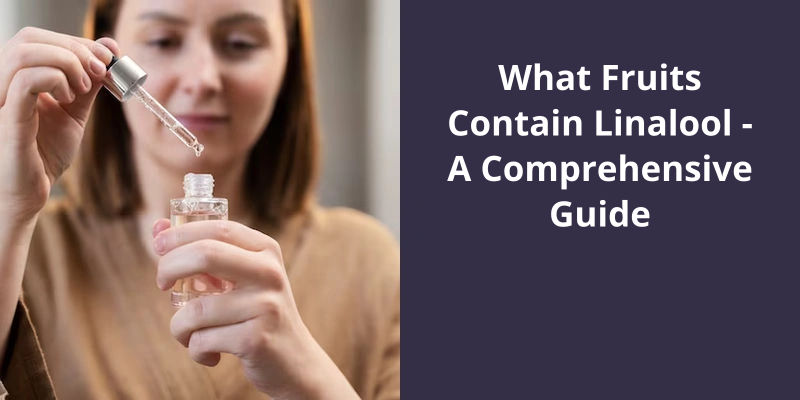The way perfumes smell on any individual, including you, is due to a mix of science and personal chemistry. The powdery scent you perceive when you spray on perfume is likely due to certain notes or ingredients in the fragrance like iris, vanilla, or musk, that are known to have a powdery effect. Additionally, your skin’s pH level and your personal body chemistry could affect how these notes interact and are perceived – thus, they could end up smelling powdery on you. Lastly, our individual scent receptors might interpret the same fragrance differently based on memories and personal preference, so what smells powdery to you might smell different to someone else.

What Does Powdery Floral Mean?
As the fragrance develops, floral notes such as jasmine, rose, and violet become more prominent, but with a soft powdery texture that creates a sense of comfort and coziness. The powdery element comes from the use of iris, violet, orris root, or even talc in the base notes. These ingredients add a smooth, powdery finish that’s often associated with vintage and classic fragrances.
Powdery floral fragrances are popular among women of all ages and are often considered romantic, feminine, and elegant. The scent is perfect for daytime wear, especially during the spring and summer months when the weather is warm and sunny. It’s also a great option for special occasions like weddings, anniversaries, or any other romantic event.
They can be worn by women of all ages and are appropriate for any occasion. They’re light enough to be worn to the office or everyday activities, but also sophisticated enough for formal events. It’s the perfect fragrance for those who want to smell feminine and elegant without being overpowering.
They’re a classic choice for any woman who wants to smell feminine, elegant, and romantic.
Understanding the science behind perfume can bring a whole new appreciation for the art of scent. One commonly used fragrance family is the powdery scent. But what exactly makes a scent powdery? What ingredients are used to achieve this effect? In this article, we’ll explore the fascinating world of powdery perfumes and the ingredients that give them their unique character.
Why Do Perfumes Smell Powdery?
Aldehydes provide a light, airy feel to perfumes, which is why they’re commonly referred to as “the sparkle” in perfume creation. In addition to aldehydes, iris is another popular ingredient used in powdery scents. Iris root is commonly referred to as orris, and it’s a rich, velvety aroma that’s distinct and recognizable. Orris gives a powdery scent a luxurious feel, often making it reminiscent of makeup or baby powder.
In addition to aldehydes and iris, other notes that can contribute to a powdery scent include musk, vanilla, and certain types of florals. Musks, especially white musk, have a clean, fresh smell that contributes to the overall airy vibe of a scent. Vanilla adds sweetness to the powdery aroma, while florals like violet or rose can add a soft, powdery feel to the blend.
Overall, powdery notes add a nostalgic feel to a fragrance, making it reminiscent of a bygone era. For some people, powdery scents are comforting and familiar. They evoke memories of soft, feminine clothing, freshly washed linens, and other comforting scents. For others, powdery notes can be overwhelming and cloying, particularly if the fragrance is too heavy on aldehydes or musks.
As with any scent, the key to creating a powdery blend is balance. Too much of any one ingredient can make the fragrance overpowering or unbalanced. Skilled perfumers know how to blend various notes so that they harmonize together to create a complex, multi-layered scent that’s powdery yet not overwhelming.
How Do Perfumers Balance Different Notes in a Fragrance?
- Understanding scent chemistry and how different notes interact with each other
- Using a fragrance pyramid with top, middle, and base notes to create a well-rounded scent
- Experimenting with different ratios of ingredients to find the perfect balance
- Considering the target audience and the occasion for which the fragrance is intended
- Utilizing natural and synthetic ingredients to create a diverse range of scents
- Allowing the fragrance to sit and settle before finalizing the recipe
The key to making your perfume last longer is to improve your skin chemistry. Understanding the best practices for moisturizing and prepping your skin is essential for getting the most out of your favorite fragrance. In this article, we’ll explore some simple steps you can take to enhance your skin’s chemistry and ensure your signature scent stays put all day long.
How Can I Improve My Skin Chemistry for Perfume?
Another thing to keep in mind is your diet and hydration. Drinking plenty of water and eating a healthy diet can help improve your skin chemistry and make your perfume last longer. When your body is well-hydrated and nourished with essential nutrients, it produces healthier skin cells which are ideal for perfume absorption.
Additionally, your skin pH level can have an impact on how well a perfume adheres to your skin. To maintain a healthy pH level, you can use skincare products that are pH-balanced and avoid using harsh soaps or cleansers that can disrupt your skins natural pH balance.
It’s also worth noting that the time of day when you apply perfume can make a difference. Perfumes generally last longer when they’re applied to warm skin, which is why many people prefer to apply perfume after taking a warm shower or bath. However, if you apply perfume to cold skin, the fragrance molecules will take longer to warm up and release, which can result in a weaker scent.
One is to layer your fragrance, using a scented body lotion or oil before spraying your perfume. This can help lock in the scent and create a more lasting effect. Another trick is to apply perfume to your pulse points, such as your wrists, neck, and behind your ears. These areas tend to be warmer, which can help release the fragrance molecules.
The Impact of Climate on Perfume and Skin Chemistry
The relationship between climate and perfume and skin chemistry is an interesting topic. The climate can affect how a perfume smells on a person’s skin due to the chemical reaction between the ingredients in the perfume and the skin’s natural oils. The temperature, humidity, and other environmental factors can also impact how long a perfume lasts on the skin. Furthermore, changes in climate can also affect a person’s skin chemistry, which can have an impact on how a perfume smells and lasts. Understanding this relationship can help individuals choose perfumes that are best suited for their skin and the climate they’re in.
While perfume can be a great way to add a pleasant scent to your outfit, it can often be overwhelming and may linger on your skin long after you’ve left the room. Fortunately, there are simple and effective ways to remove the scent without damaging your skin. One such method is using baking soda, which can help soak up the oils and remove excess perfume. Here’s how to do it.
How Do You Get Perfume Smell Off Your Skin?
Another option is to use rubbing alcohol. Simply moisten a cotton ball or pad with rubbing alcohol and gently rub it over your skin. The alcohol will help to dissolve the perfume oils and remove the scent from your skin.
This individualized relationship between scent and body chemistry is further complicated by the way our skin naturally reacts with fragrances. It isn’t just about finding the perfect scent – it’s about finding the perfect scent for you.
Does Your Body Chemistry Affect Perfume?
When the fragrance molecules come in contact with the skin, they react with the natural oils and bacteria on it. These reactions create a personalized scent, which is unique to an individual. Hence, a scent that smells fantastic on one person may not smell as good on another.
The pH level of the skin also plays a significant role in determining how a person’s natural scent interacts with the fragrance. People with more alkaline skin usually have a stronger reaction to perfumes than those with more acidic skin. A fragrance might smell strong and overpowering on someone with alkaline skin, while it may smell faint and barely noticeable on someone with acidic skin.
Moreover, what a person eats, drinks, and smokes can impact the scent of perfume on their body. People who smoke cigarettes typically have a more significant natural odor on their skin. This is because cigarette smoke is made up of thousands of chemicals that penetrate into the skin and hair.
Additionally, genetics also contribute to how a fragrance smells on someone. Smell perception also varies from person to person based on their genetic makeup. Some people have a superior sense of smell than others, which means they can smell subtle differences in fragrances that others may not.
In humid conditions, perfumes can smell stronger and feel stickier on the skin. On the other hand, in dry climates, the scent of perfume can evaporate quickly. Hence, a scent that smells lovely in the winter may not turn out as desirable in the summer.
To summarize, the human body chemistry is responsible for how fragrance smells on the skin. It isn’t just the specific perfume itself that determines how it smells but various other factors such as skin type, pH level, diet, genetics, weather conditions, and hormones. Therefore, when choosing a perfume, one should consider all these factors to make sure it smells just as good on their skin as it does in the bottle.
How to Choose a Perfume Based on Body Chemistry
- Understand your body chemistry and how it affects perfume.
- Choose perfumes with notes that complement your body chemistry.
- Stick to one or two scents that work well with your body chemistry.
- Try before you buy to make sure the perfume works for you.
- Consider the season and occasion when choosing a perfume based on body chemistry.
- Ask for recommendations from perfume experts or friends.
- Try layering scents to create a personalized fragrance that works well with your body chemistry.
Now that we know why we may not always be able to smell our own perfume, let’s take a closer look at the science behind it and what factors can affect our ability to detect scents on ourselves.
Can You Smell Your Own Perfume on You?
Firstly, our nose is highly adaptable to the scents around us. After smelling the same scent for a prolonged period, our nose tends to ignore that particular smell. This phenomenon is called olfactory fatigue, also known as nose-blindness, which makes it harder for you to detect your own perfume. So, if you cant smell your own perfume, it may be because youve grown accustomed to it.
Secondly, the natural oils in our skin can significantly impact the way in which our fragrance plays out. The chemical structure of scents changes because of the oils in our skin, which can make it difficult for us to detect our own fragrance. Therefore, we may not always smell our perfume even if weve spritzed a significant amount of it.
Fourthly, the environment we’re in also impacts how our nose picks up the scent. For instance, if you’re in a highly fragranced environment, be it a perfume store or a flower market, our olfactory senses are already overwhelmed. Hence, it makes it even harder for us to detect our own perfume when we’re in such an environment.
Lastly, the concentration of the fragrance can make a huge difference in how our nose perceives the scent. Strong scents may be detected more easily than those with a lighter concentration. Therefore, if you cant smell your perfume, chances are that the concentration of the fragrance is too light.
The Difference Between Eau De Parfum, Eau De Toilette, and Other Fragrance Concentrations
The difference between eau de parfum, eau de toilette, and other fragrance concentrations lies in the amount of perfume oil and alcohol in the scent. Eau de parfum contains a higher concentration of perfume oil and less alcohol, making it stronger and longer lasting. Eau de toilette, on the other hand, has a lower concentration of oil and more alcohol, making it lighter and more suitable for everyday use. Other fragrance concentrations, such as eau de cologne and perfume, also have varying levels of fragrance oil and alcohol.
Conclusion
While certain factors such as body chemistry and skin pH have been identified as potential contributors to this subjective perception, the true cause and mechanisms remain elusive. Despite these confounding elements, the experience of scent and the role it plays in our daily lives – from personal hygiene to emotional connection – is undeniable. As a result, the complexities of perfume formulations and their interaction with individuals' unique biological and experiential contexts continue to fascinate researchers and perfume aficionados alike. Regardless of why or how perfumes smell powdery on some individuals, it’s clear that scent holds a powerful place in our sensory landscape and will continue to inspire exploration and innovation.





